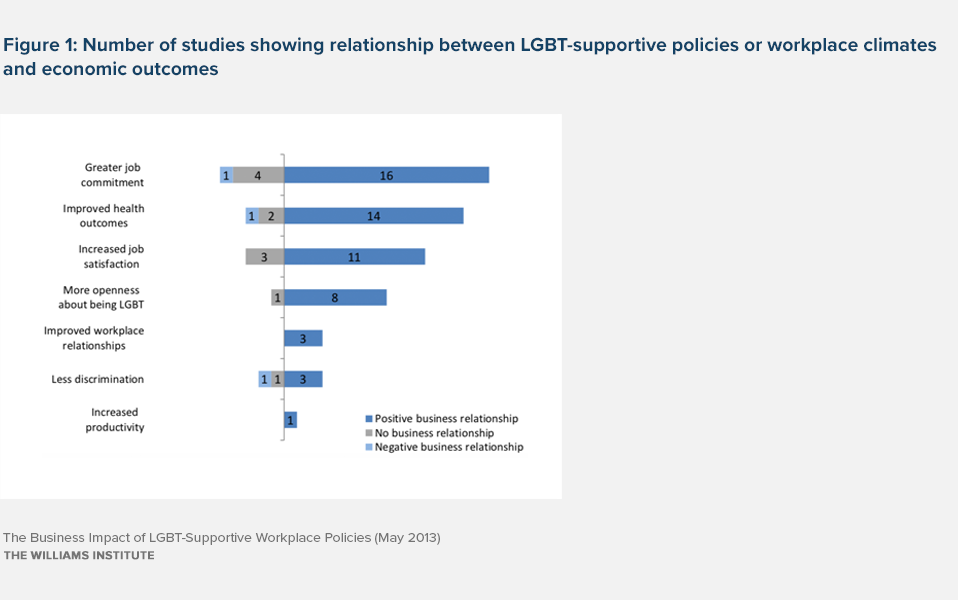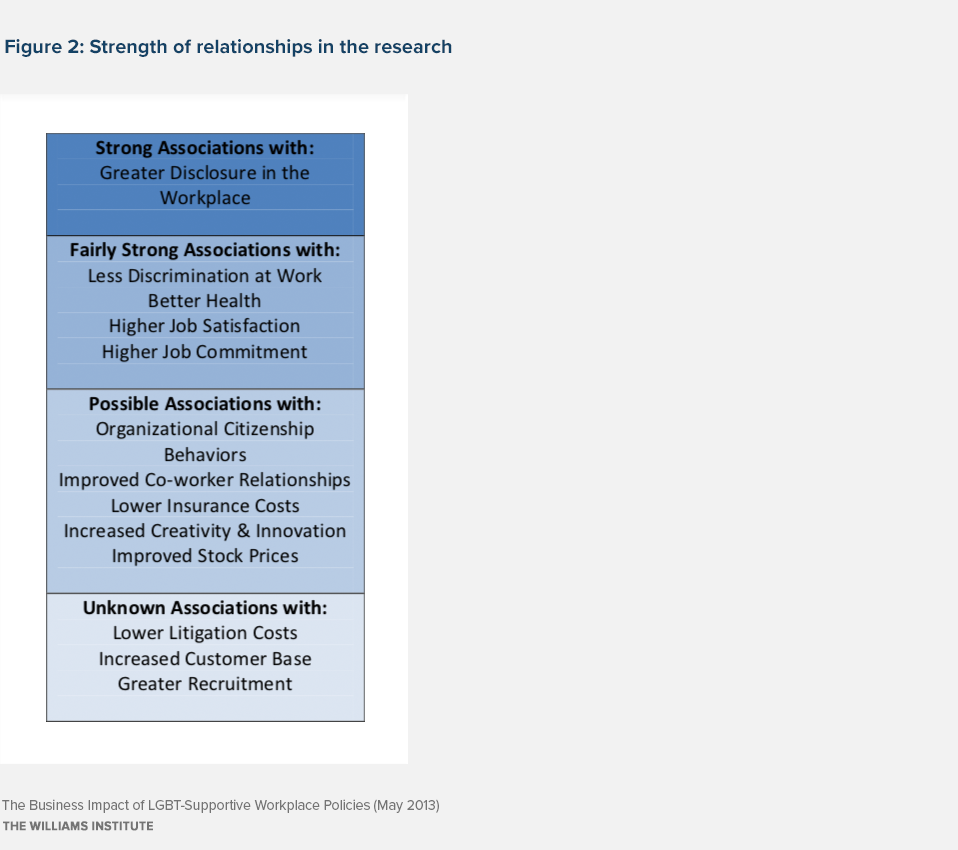Executive Summary
Today’s workforce is increasingly diverse in terms of personal characteristics such as race, ethnicity, gender, national origin, religion, gender identity, and sexual orientation. The “business case for diversity” suggests that such diversity in the workplace will lead to lower costs and/or higher revenues, improving the bottom line. Not surprisingly, employers have considered the economic benefits of adding lesbian, gay, bisexual, and transgender (LGBT)-supportive policies, including sexual orientation and gender-identity nondiscrimination policies and domestic partner benefits policies.
The present review identifies and evaluates all published research evaluating the impact of LGBT-supportive employment policies and workplace climates on business outcomes in order to answer two primary questions: 1) Does research show that LGBT-supportive policies bring about the specific benefits mentioned by private companies that enact them, or are they associated with other similar economic benefits that may have an impact on the bottom line?; 2) If LGBT-supportive policies bring about certain benefits, does research show that these benefits actually have an impact on the bottom line, and if so, is it possible to estimate that effect in quantitative terms?
In total, this study reviews 36 research studies that include findings related to the impact of LGBT-supportive policies or workplace climates on business outcomes. We conclude that this body of research supports the existence of many positive links between LGBT-supportive policies or workplace climates and outcomes that will benefit employers. However, none of the studies provide direct quantitative estimates of the impact on the bottom line.
More specifically, the existing set of studies demonstrates that LGBT-supportive policies and workplace climates are linked to greater job commitment, improved workplace relationships, increased job satisfaction, and improved health outcomes among LGBT employees. Furthermore, LGBT-supportive policies and workplace climates are also linked to less discrimination against LGBT employees and more openness about being LGBT. Less discrimination and more openness, in turn, are also linked to greater job commitment, improved workplace relationships, increased job satisfaction, improved health outcomes, and increased productivity among LGBT employees.
Figure 1 presents the number of studies finding that employers’ LGBT-supportive policies and workplace climates lead to positive business outcomes compared to the number of studies that find a negative relationship or no relationship to business outcomes. As shown in the figure, most studies find a positive relationship between LGBT-supportive policies or workplace climates and business-related outcomes, while few or none find a negative or no relationship.

